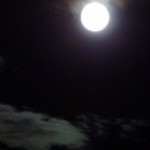It’s been said that a translation is like a woman, who is either beautiful or faithful, but not both.
For example, try to translate this Chinese doublet:
光阴似箭 日月如梭
人生几何 对酒当歌
My friend, SL Chow of Regina (a psychology professor), rendered it this way:
Like an arrow time travels in haste
As sun and moon interlaced
To Bacchus and Terpsichore
Fleetingness of life submits
It has an appeal of western art and culture. He also corrected the order of the last two phrases. On the other hand, in my attempt I keep their order as written above because 梭 rhymes with 歌 in Cantonese:
Time flies like an arrow; sun and moon shuttle forward.
Life lasts only so long; drink together and sing along.
This rendition remains faithful to the oriental flavor without allusion to Greek mythology,
while preserving the original imagery.
The native English speaker may identify with the first version more easily, while some may
prefer an unfamiliar taste of naïveté or uncouth literalism. I have also made each phrase
conform to a five-word structure similar to the four-word phrase of the Chinese format.
It is even harder to make each phrase with the same number of syllables for uniformity
as in the original Chinese, which consists of monosyllabic characters.
There is more than one way to skin a cat.
We, SL and I, agreed that for the reader, each has his/her own taste and interest.
A last word: The Chinese doublet reminds me of the wit of Groucho Marx, who once said:
- Time flies like an arrow. Fruit flies like a banana.


